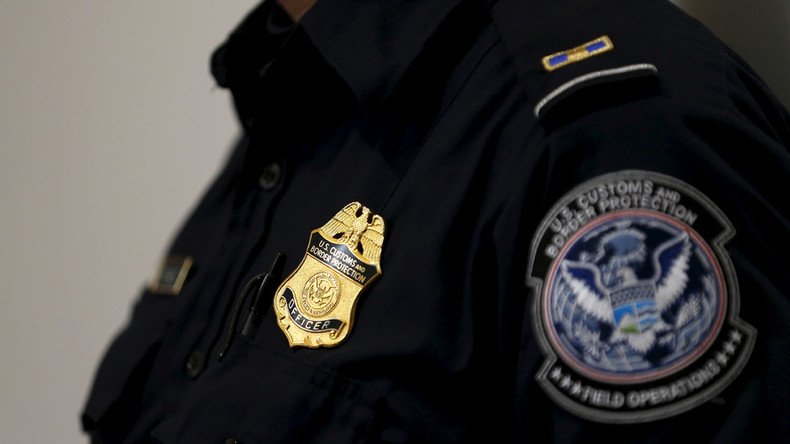‘This place is like Guantanamo’: Force-feeding of Sikh refugees incites protests

Known as the “Krome 10,” refugees from Bangladesh in a Miami detention center were court-ordered to undergo force-feeding if they continue a hunger strike protesting their treatment. Multiple activist groups have arrived at the facility to protest.
The 10 Sikh men say the Krome Service Processing Center run by Immigration and Customs Enforcement (ICE) keeps them in abusive conditions and has blocked their bond hearings. As a last gasp effort, they began a hunger strike in late November, refusing to eat until their rights are restored.
Over 100 refugees, mostly South Asians, go on hunger strike over #Thanksgivinghttps://t.co/x4jgNn6kKEpic.twitter.com/rjXehql9OT
— RT America (@RT_America) November 28, 2015“We came here to escape violence and danger in our country. But it seems like this place is like Guantánamo. ICE would rather force-feed hunger-strikers than listen to our basic demands for freedom,” detainee Mahmudul Hasan told the Miami New Times.
Hasan and the other nine men are a faction of a total of 22 Sikh refugees who are facing oppression back in Punjab, India, where they are from. Some have been in ICE custody since 2014, while others have been detained for under a year. All are represented, in part, by the American Civil Liberties Union.
#Not1More#hutto27pic.twitter.com/XV9ucz2JiY
— Paul Lefrak (@PaulLefrak) December 27, 2015In #solidarity with Bangladeshi detainees at Krome detention ctr #Miami#Not1More#hutto27#detaineestrikepic.twitter.com/kw2oi2u013
— Paul Lefrak (@PaulLefrak) December 27, 2015On December 21, Judge Cecilia Altonaga of the Southern District Court in Miami-Dade ordered the hunger-strike to be stopped coercively for the sake of the detainees’ own health. The doctor for the holding facility, Dalian Caraballo, told the judge that the men, who had been fasting since before Thanksgiving, were not in urgent need of medical intervention, but if they continued to refuse food, they would risk incurring serious and permanent impairments.
Abdul Awal, a 21-year-old refugee, also testified, though through an interpreter.
“We would rather die here,” Awal was translated as saying, fearing certain death back home if deported.
The following Sunday, about 30 people from the Florida Immigrant Coalition, Friends of Miami-Dade Detainees, and other activist groups protested at the gates of the facility.
“[ICE] is treating these people like they’ve been charged with something like terrorism, and they’re forcing them to do something with their bodies that’s against their will,” activist Elizabeth Taveras told the Miami New Times. “We’re demanding the end to the criminalization of people’s bodies. We’re demanding the release of the detainees.”
Nationwide raids planned to deport undocumented families – report
https://t.co/KlDtPxEKjFpic.twitter.com/8rDsSIKlRV
— RT America (@RT_America) December 25, 2015Clara Cerrato, a volunteer with Friends of Broward Detainees, was also at the protest. Her husband Carlos is being held at the Broward Detention Center, another holding facility nearby. The Cerratos, who claim their family witnessed a murder by the MS13 gang in Honduras, say they have become targets for assassination and have been waiting for a trial to determine their status in the US since November 15.
“ICE isn’t answering any of Carlos’ questions. When he talked to his deportation officer, he told him he didn’t know anything, maybe two more months,” Clara told the Miami New Times. “I expect things like this to happen in Central America, Mexico, but not here.”












